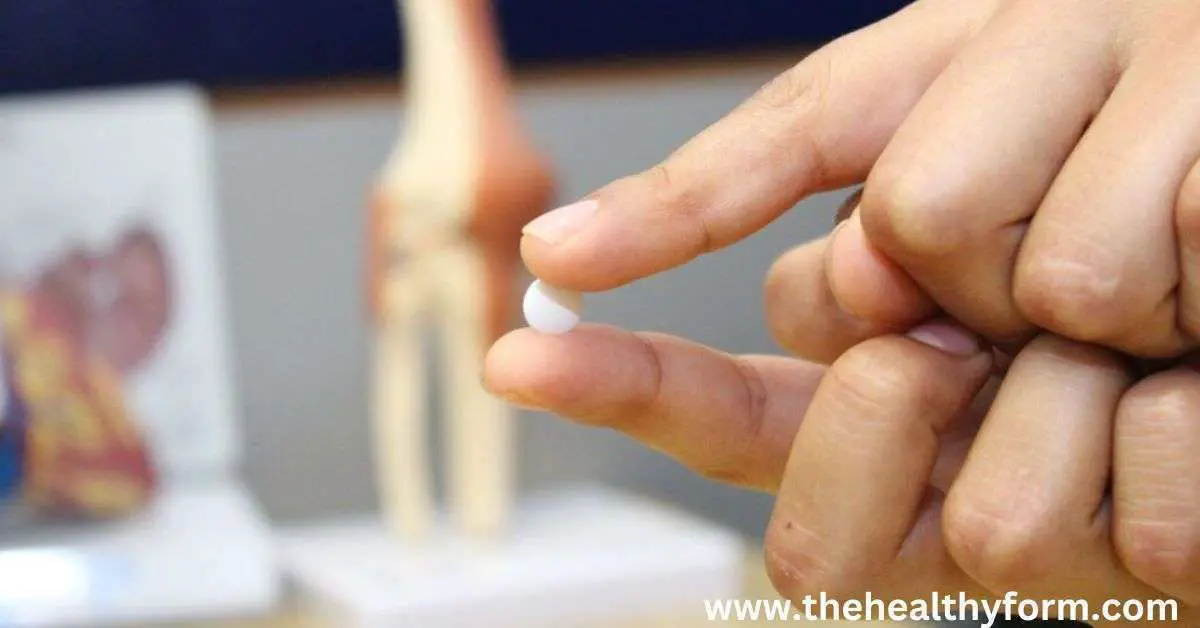10 Tips for Enhancing Sexual Intimacy and Pleasure for Women
10 Tips for Enhancing Sexual Intimacy and Pleasure for Women. From communicating your desires to trying new things, these strategies can help you and your partner have a more fulfilling and enjoyable sexual relationship. A woman’s overall health and well-being include sexual intimacy and pleasure. However, many women may encounter obstacles or difficulties in obtaining sexual gratification and pleasure, resulting in emotional distress and a worsened standard of living. Exploring various methods and strategies to strengthen a partner’s physical and emotional bond, heighten sexual desire and arousal, and boost overall sexual satisfaction are all part of improving sexual intimacy and pleasure for women.
There is no one-size-fits-all solution, and it’s important to remember that everyone’s experience of sexual intimacy and pleasure is unique. It’s critical to be open with partners about one’s sexual needs and desires and, if difficulties arise, to seek professional assistance. Women can enhance their sexual health and pleasure by being proactive. This blog post will share ten tips for supporting female sexual health.

Female sexual health concerns
Concerns about a woman’s sexual health can range from physical and medical conditions to emotional and psychological problems that limit her ability to engage in intimate relationships and experience sexual pleasure. Typical issues with women’s sexual health include:
Painful intercourse: For many women, experiencing pain during intercourse is a common problem that several conditions, including infections, vaginal dryness, or endometriosis, can bring on.
Low libido: Women frequently worry about a decline in sexual desire or low libido, which hormonal imbalances, stress, anxiety, or interpersonal relationship issues can bring.
Orgasmic disorders: Another common worry for many women is having trouble getting orgasmic or not getting orgasmic during sexual activity.
Vaginismus: This condition results in uncontrollable contractions of the pelvic floor muscles, which makes penetration challenging or impossible.
Sexual trauma and emotional problems: Trauma, emotional problems, and marital issues can all impact a woman’s capacity for sexual pleasure and intimacy.
To address the underlying issues and enhance sexual health and pleasure, seeking medical and psychological support for these concerns is crucial. Treatment options for many of these problems include medication, therapy, and alterations in our way of life and behavior.
Women’s sexual health and wellness
Physical, psychological, and emotional components of sexual well-being are part of women’s sexual health and wellness. It includes everything from having a functioning reproductive system to enjoying intimacy and sexual pleasure.
Hormonal imbalances, medical diseases, stress, anxiety, and relationship problems are some of the elements that might impact women’s sexual wellness and health. To ensure general well-being, a holistic approach to sexual health and wellness is necessary.
The following are some methods for enhancing the sexual wellness and health of women:
Safe sex practices: Using contraceptives like condoms or other birth control methods can help avoid STIs and unintended pregnancies.
Open discussion: Open and honest discussions about sexual wants, desires, and concerns with partners can increase sexual satisfaction and intimacy.
Taking care of medical issues: It’s critical to get medical assistance for any physical ailments, hormonal imbalances, or other physical problems that may impact sexual health.
Lowering stress and anxiety: Self-care, mindfulness, and relaxation techniques can enhance sexual health and wellness.
Making self-pleasure a priority: Masturbation and exploring sexual urges can enhance sexual satisfaction and connection.
In general, a proactive strategy for women’s sexual health and wellness entails treating the psychological, emotional, and physical aspects that may impact sexual well-being. Women can enhance their general sexual health and sexual performance by adopting healthy behaviors and requesting expert assistance when necessary.
Enhancing Sexual intimacy and pleasure
Enhancing intimacy and pleasure in sexual experiences can involve various physical, emotional, and psychological factors. Some strategies for enhancing intimacy and pleasure for women include:
- Communication: Open and honest communication with partners about desires, needs, and boundaries can help create a more intimate and enjoyable sexual experience.
- Exploring fantasies: Exploring sexual fantasies with a partner or through self-pleasure can help enhance sexual pleasure and satisfaction.
- Incorporating sensual touch: Sensual touches, such as massage or sensual touching, can help increase arousal and pleasure.
- Trying new things: Experimenting with different sexual positions, techniques, and toys can help explore new sensations and enhance pleasure.
- Mindfulness: Mindfulness practices, such as deep breathing or meditation, can help reduce stress and increase present-moment awareness, leading to more fulfilling sexual experiences.
- Self-care: Prioritizing self-care, such as getting enough sleep, eating a healthy diet, and exercising regularly, can help improve overall sexual health and well-being.
Overall, enhancing intimacy and pleasure in sexual experiences involves taking a holistic approach to sexual health and wellness. By incorporating healthy habits, exploring desires, and communicating openly with partners, women can improve their sexual experiences and increase pleasure and intimacy.
Understanding female sexual anatomy
Understanding female sexual anatomy is important for sexual pleasure and overall sexual health. Female sexual anatomy includes both external and internal structures, including:
- Vulva: The vulva is the external genital area of the female body and includes the clitoris, labia majora, labia minora, and vaginal opening.
- Clitoris: The clitoris is a highly sensitive, erectile structure located at the top of the vulva. It contains thousands of nerve endings and is a primary source of sexual pleasure for many women.
- Labia majora: The labia majora are the larger, outer lips of the vulva. They contain fatty tissue and are covered with pubic hair.
- Labia minora: The labia minora are the smaller, inner lips of the vulva. They are highly sensitive and can become engorged with blood during sexual arousal.
- Vagina: The vagina is an elastic, muscular canal that connects the vulva to the cervix. It is highly flexible and can expand and contract during sexual arousal and childbirth.
- Cervix: The cervix is the lower part of the uterus that extends into the vagina. It contains a small opening that allows sperm to enter during sexual intercourse and allows menstrual blood to exit the body.
Understanding female sexual anatomy can help women better understand their bodies and sexual responses and communicate more effectively with partners about sexual desires and preferences. It can also help women identify any potential issues with sexual health, such as pain during intercourse or difficulty achieving orgasm.
Communication and consent in sexual relationships
Consent and communication are essential elements of good sexual interactions. By being open and honest, partners may better understand each other’s needs, limitations, and comfort zones. This communication can occur before, during, or after sexual activity and can be vocal or nonverbal. Permission is also essential for guaranteeing the safety and voluntary nature of the sexual activity.
Before participating in any sexual activity, getting your partner’s unambiguous, enthusiastic agreement is crucial. You should also respect your partner’s limits and sexual preferences. Moreover, consent must be continuous and revocable at any time. Healthy sexual relationships are fundamentally characterized by consensual sexual activity, and reaching this aim requires effective communication and permission from both parties.
Managing sexual dysfunction
Even though there are various therapy options available to assist in enhancing sexual function and overall sexual health, managing sexual dysfunction can be difficult. Depending on the underlying cause, there are several treatment options for sexual dysfunction, including medication, hormone therapy, psychotherapy, and lifestyle modifications. Examples include the use of drugs like Viagra or Cialis to treat erectile dysfunction and the potential benefits of hormone treatment for women who have hormonal imbalances that lead to sexual dysfunction.
People who are experiencing sexual dysfunction as a result of depression, anxiety, or traumatic events may also find psychotherapy to be helpful. Lifestyle adjustments, including regular exercise, a healthy diet, sufficient sleep, and stress reduction, can help enhance sexual performance. It’s critical to get medical help if sexual dysfunction is present.
Sexual health and fertility
Sexual health is closely linked to fertility, and maintaining good sexual health is essential to ensuring successful conception and healthy pregnancy. Many factors can affect fertility, including age, medical conditions, lifestyle habits, and sexual activity. Sexually transmitted infections can also impact fertility, causing damage to the reproductive organs and leading to infertility. Practicing safe sex and seeking prompt medical attention for any signs of infection can help prevent this. Maintaining a healthy diet, regular exercise, and a healthy weight can also improve fertility and reduce alcohol and tobacco use. Regular sexual activity can also help boost fertility by increasing the chances of conception. Maintaining good sexual health and fertility is essential for overall well-being and family planning.

Sexual health and menopause
During menopause, typically in women between 45 and 55, the body undergoes hormonal changes that can impact sexual health. These changes can affect various aspects of sexual function, including desire, arousal, lubrication, and orgasm. Women need to understand these changes and explore strategies to manage their sexual health during this phase of life.
One common concern during menopause is a decrease in sexual desire or libido. Fluctuations in hormone levels, specifically a decline in estrogen and progesterone, can reduce interest in sex. Menopausal symptoms such as hot flashes, night sweats, and mood swings can also impact sexual desire.
To manage changes in sexual desire, it can be helpful to communicate openly with your partner about your feelings and concerns. Seeking medical advice from a healthcare provider, such as a gynecologist or a menopause specialist, can provide valuable guidance. They may suggest hormone replacement therapy (HRT) or other medications to alleviate symptoms and enhance libido.
Sexual health and relationship satisfaction
Sexual health and relationship satisfaction are interconnected and can greatly influence each other. When partners prioritize and maintain good sexual health, it strengthens bond, trust, and overall satisfaction. Here are some key factors and strategies for improving sexual health and relationship satisfaction:
- Open Communication: Effective communication is crucial for a healthy sexual relationship. Partners should feel comfortable discussing their desires, boundaries, and concerns openly and honestly. This allows for better understanding, compromise, and the ability to address any issues.
- Medical Care: Seeking medical assistance when necessary is essential for maintaining sexual health. Regular check-ups with healthcare professionals can help identify and address physical or psychological conditions that might affect sexual well-being, such as hormonal imbalances, erectile dysfunction, or sexual pain disorders. Treating these conditions can positively impact relationship satisfaction.
- Safe Sexual Practices: Practicing safe sex is important for both physical and emotional well-being. Using barrier methods of contraception, getting tested for sexually transmitted infections (STIs), and discussing sexual histories with each other can help prevent the spread of STIs and build trust in the relationship.
- Emotional Connection and Intimacy: Building emotional intimacy outside the bedroom contributes to a stronger connection and better sexual satisfaction. Engaging in activities that foster emotional closeness, such as spending quality time together, engaging in deep conversations, and showing affection, can enhance the overall relationship and positively impact sexual satisfaction.
- Exploration and Variety: Sexual satisfaction can be enhanced by exploring and experimenting with different activities and techniques that both partners find pleasurable. This can involve trying new positions, incorporating sensual or erotic activities, or introducing sex toys or role-playing. However, it is important always to prioritize consent and respect each other’s boundaries.
- Stress Management: High-stress levels can negatively impact sexual health and relationship satisfaction. Finding healthy ways to manage stress, such as through exercise, relaxation techniques, or seeking professional help, can improve overall well-being and enhance sexual experiences.
Seeking medical treatment for sexual health concerns
If you are experiencing sexual health concerns, it is important to seek medical treatment. A healthcare provider can help identify the underlying cause of the concern and develop a treatment plan to address it. This may include medications, therapy, or lifestyle changes.
Conclusion
Sexual health is an important aspect of overall health and well-being for women of all ages. By understanding common sexual health concerns and finding ways to support sexual health, women can feel their best and enjoy fulfilling and satisfying sex. Whether it is seeking medical treatment, enhancing intimacy and pleasure, or practicing safe sex, many strategies can support sexual health and well-being.





